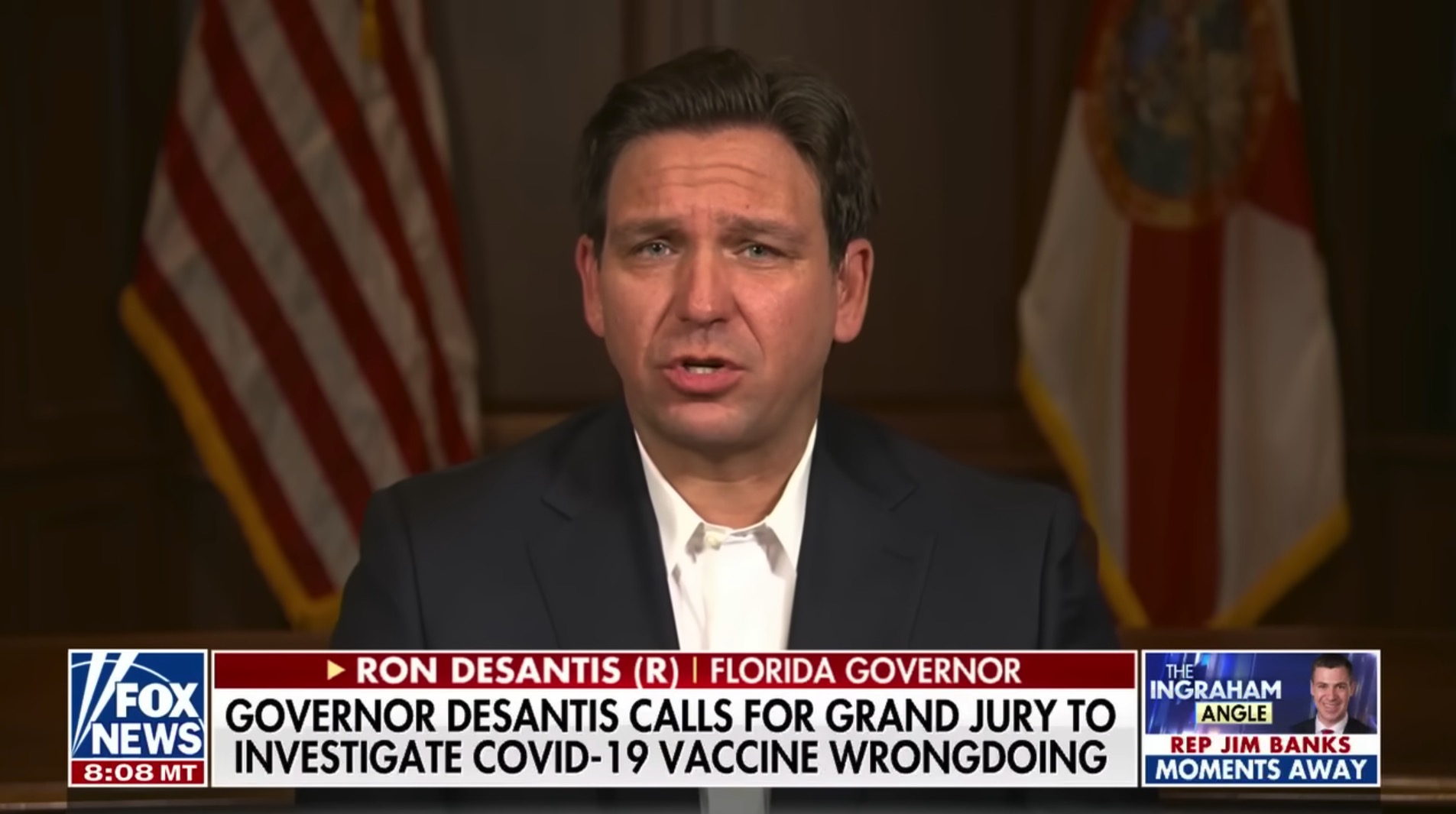DeSantis Threat to Crack Down on Press Protections Would Be Bad News For Conservative Media

Florida Governor Ron DeSantis sat at a desk fit for a cable news studio, flanked by several guests, where for an hour he proposed new ways to crack down on media outlets by weakening their legal protections. Behind him, a giant logo bellowed “TRUTH,” in an unsubtle stab at his potential 2024 rival Donald Trump. The entire set was arranged as a sleek and artful troll.
The roundtable did not end with any action. But during the conversation DeSantis repeatedly decried First Amendment protections granted to US media outlets and brainstormed ways to weaken them.
He described the press as the country’s “leading purveyors of disinformation” who are victimizing regular Americans and suggested he would take action against the industry. “Stay tuned,” he concluded.
Gov. DeSantis Hosts Panel Discussion on Defamation https://t.co/UzFTcLjE6a
— Ron DeSantis (@GovRonDeSantis) February 7, 2023
As far as specific proposals go, DeSantis floated cracking down on the use of anonymous sources and asked if the Supreme Court could reconsider New York Times v. Sullivan, the 1964 ruling that established “actual malice” as a standard for defamation of public figures.
The standard holds that to be found liable for defaming a public figure, a media outlet must know their statements are false or display “reckless disregard” for the truth.
It is essential to note that this standard applies only to public figures — noteworthy individuals who are well known due to their status as elected officials, sports stars, or popular entertainment figures, for example. There is a lower bar for defamation if the person in question is not a public figure.
I reached out to famed First Amendment lawyer Floyd Abrams (the father of Mediaite founder Dan Abrams) to ask about the comments from Florida’s popular Republican governor.
“The case that Governor DeSantis and his ideological allies would like to overrule is the most important ruling relating to freedom of the press in the country’s history,” Abrams said. “It protects writers and speakers across the ideological spectrum when they err non-intentionally in covering public figures.”
The irony of DeSantis’s criticism of US free speech protections is that conservative outlets he favors would be the first to face severe consequences if the actual malice standard was overturned.
One of his guests at the roundtable was Libby Locke, a lawyer whose firm Clare Locke is representing Dominion in its $1.6 billion defamation suit against Fox News.
In fact, Fox, Newsmax and OAN — all networks that have showered DeSantis in positive coverage and in turn been granted exclusive interviews with the Republican Party star — are all facing serious defamation lawsuits over false claims about the 2020 election.
Dominion and Smartmatic, another voting tech company, are suing those networks for billions over false claims they aired in support of Trump’s stolen election lies.
At Fox News, the most watched and most lucrative cable news network in the country, the lawsuits are seen internally as a serious threat given the evidence (and the potential monetary damages), but even then Dominion and Smartmatic have an uphill climb thanks to the strong First Amendment protections granted to media outlets in the United States.
Indeed, Abrams told me that the value of those protections “is something one can see with particular clarity at this time when Fox News, hardly a liberal bastion, is highly dependent upon the Sullivan ruling in defending itself against extremely threatening libel cases.”
Without those protections — protections DeSantis would like to weaken — Fox News would face a far more threatening challenge from Dominion and Smartmatic, as would other conservative media outlets that criticize Democratic elected officials, liberal Hollywood celebrities, “woke” athletes, and so on.
DeSantis insisted during the roundtable that the new laws would not benefit him, and that he is seeking ways to protect “run-of-the-mill citizens” from having their lives destroyed by a hyper-partisan media. But protections like the actual malice standard don’t harm regular people.
Just look at the Sandy Hook parents, who successfully sued Alex Jones for defamation and were awarded more than $1 billion by two juries, or Nick Sandmann, who attended the DeSantis roundtable because of his successful legal challenges to NBC, CNN, and the Washington Post.
First Amendment lawyers and experts point out instead that weakening those protections would open up the press to an all out war from powerful people with the means to silence criticism and stifle scrutiny.
Punishing the press is a universal impulse on the right and key to its politics. But leaders like DeSantis may find paying anything more than lip service to that impulse threatens conservative media just as much, if not more than the mainstream press.
This is an opinion piece. The views expressed in this article are those of just the author.




